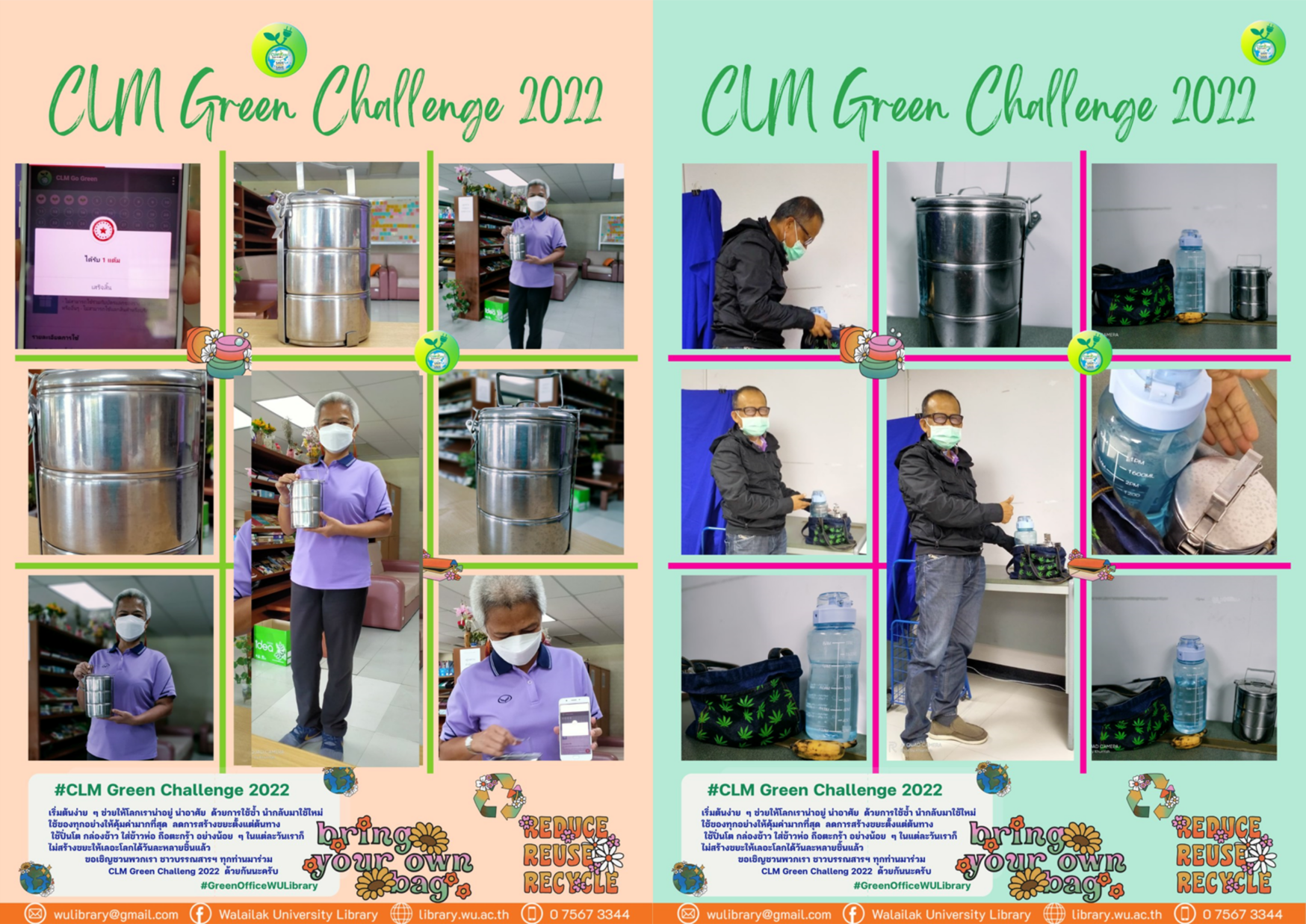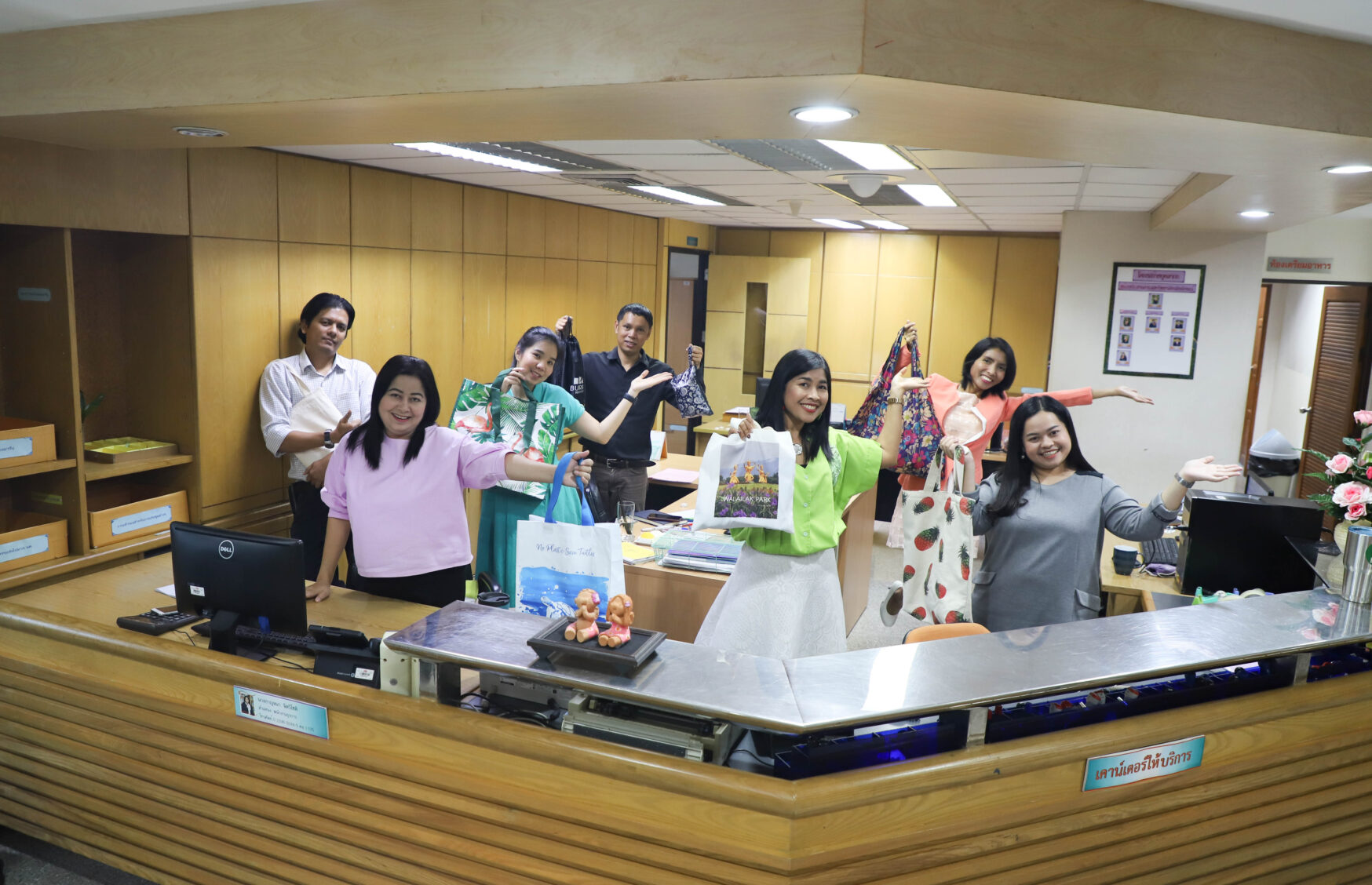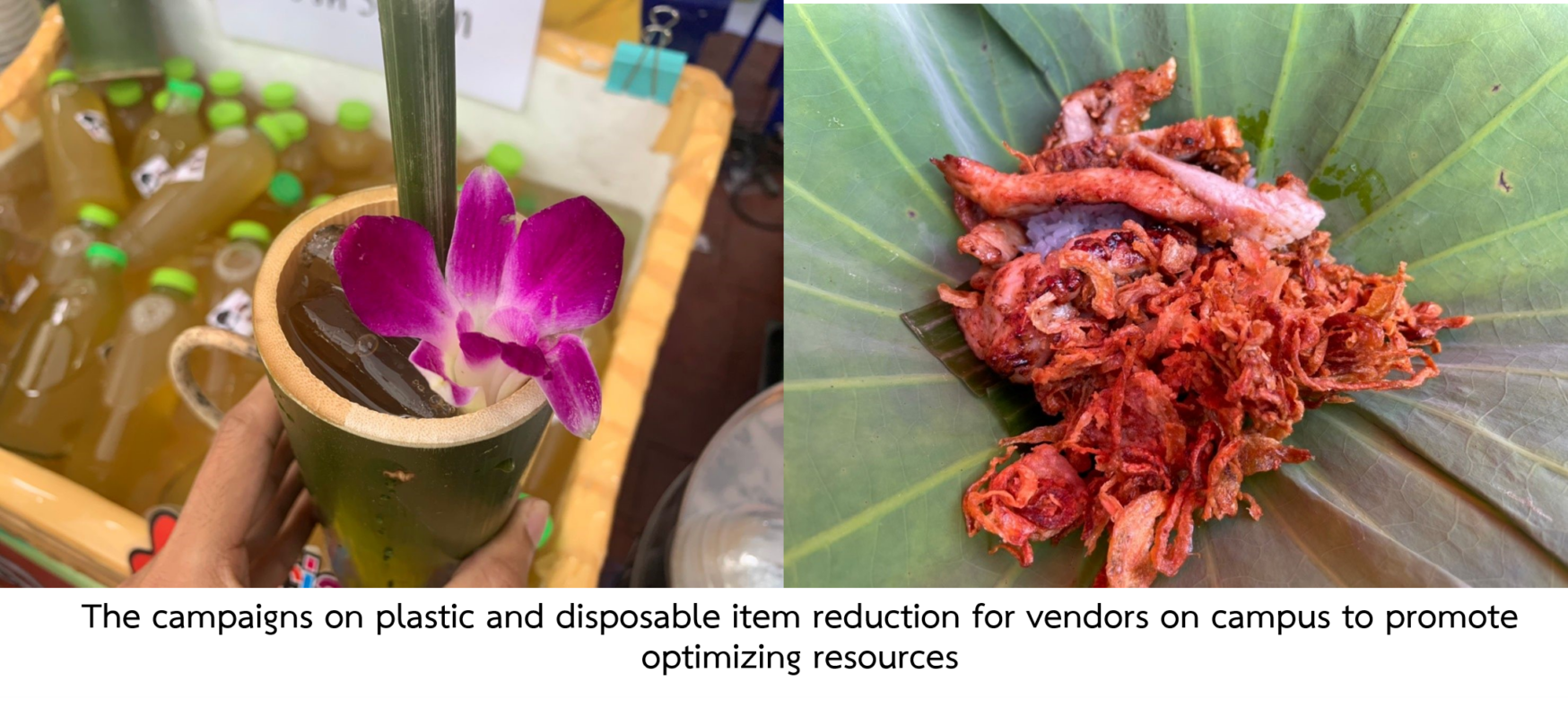Walailak University’s Single-Use Plastic Waste Reduction Policy and Implementation
Walailak University created a policy on Single-Use Plastic Waste Reduction in 2022. In addition, the policy has been reviewed in 2023 and still active to the present. The university manages waste by giving top priority to minimizing waste generation as much as possible. They emphasize the efficient use of raw materials or resources. When waste is generated, they strive to find ways to reuse or recycle it to the maximum extent, taking into account the potential utility of each type of waste and relevant laws. Disposal of waste is considered the last choice. Furthermore, the university raises awareness about the use of single-use items within the university, which has an impact on the environment, including terrestrial and aquatic ecosystems.
From this policy, the university creates awareness and fosters a sense of responsibility among employees and students to reduce the use of single-use items, which are hazardous waste items, including electronic waste, batteries, light bulbs, and various types of plastics. As the mentioned waste items are on the rise every year and the improper management of electronic waste can lead to environmental contamination, impacting the health of those involved, the university encourages students and staff within the university to change their consumption behavior by using alternative items to reduce single-use electronic waste. For example, this includes data storage and backup using online cloud technology, which allows data to be stored on cloud servers and accessed over the internet instead of saving data on CDs or DVDs. Also, there’s a shift to rechargeable electric flashlights instead of using regular battery-powered flashlights.


Furthermore, the university has implemented policy on no free single-use plastic bags that will be available to all store customers. However, for ready-to-eat cooked food, plastic bags made from 100% recycled materials, bioplastic bags, or paper bags can be available for customers for purchase as food containers. Additionally, no Styrofoam containers or compostable handle plastic bags will not be available at all stores. Moreover, all single-use plastic cups will be replaced with bio-plastic coated paper cups or washable and reusable ones at all stores, and bring-your-own-cup discounts will be offered for all takeout beverage stores. Besides, single-use plastic spoons, forks and straws will not be provided by any store unless requested by customers.

As a result of this policy and campaign to reduce single-use items, all shops within the university have become more aware and have actively adopted practices that reject the use of single=use plastics and foam containers. For example, businesses within the university have rejected the use of items like foam containers, plastic water bottles, aluminum cans, and plastic straws. And then turned to choose plastic or biodegradable materials like banana leaves for wrapping, containers made from sugarcane, and paper straws for drinking instead of plastic bags. This is a focus on and emphasizes the importance of reducing waste to the minimum.


Related link:
Goal 12: Responsible consumption and production


